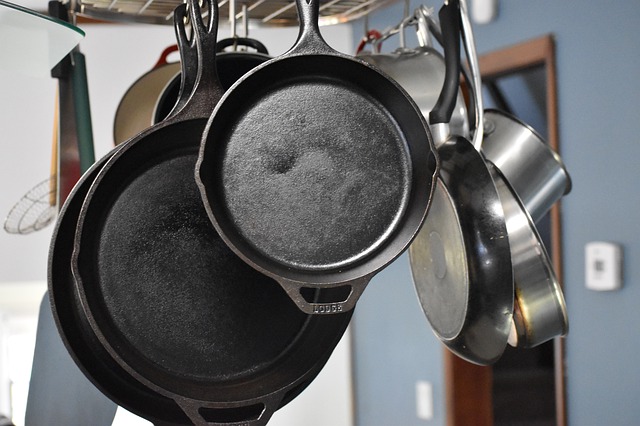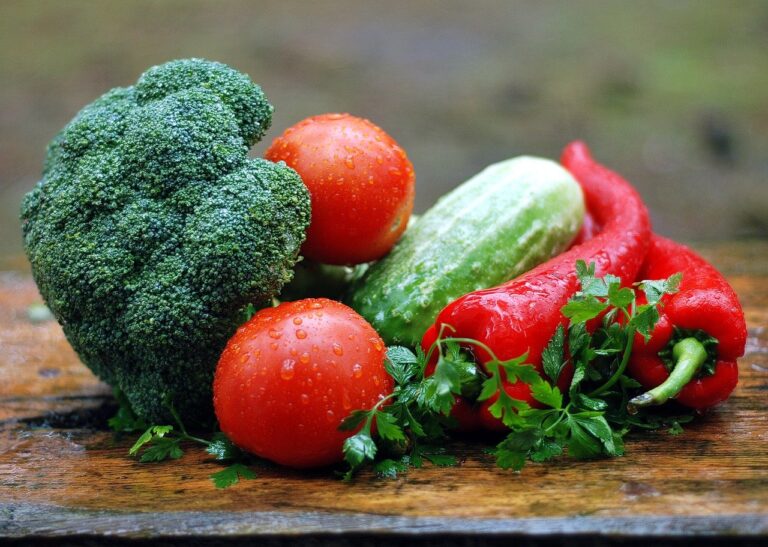Cast-Iron Cooking – Getting Started
Cast iron cooking is a great way to add flavor and nutrients to your food, but it can be intimidating for those new to the cast iron concept. Cast-iron skillets are a kitchen workhorse; they are versatile, durable, and offer an unbeatable cooking experience that can’t be duplicated by anything else you might have in your repertoire; and contrary to popular belief, a cast-iron pan is a nonstick pan.
The more often a cast-iron pan is used over time, as long as care instructions are taken into account, the better it becomes at its job.

Benefits of Cooking with Cast Iron
- A cast iron pan is a lifelong investment. Cast-iron pans are unique in that they can last a lifetime or longer. They are an excellent investment for home cooks. They might cost a little more, but you are getting a pan that you should never have to replace. So you can say goodbye to the idea of getting a new skillet every few years. Unlike most aluminum pans, cast iron pans will never warp or scratch unless you intentionally try to damage them. With proper care, your cast-iron cookware will last for decades!
- They are super versatile! There is a lot you can do with a cast iron skillet, not just in what food you can cook in it, but where it can be used. They actually work great with any type of heat, gas, electric or open flame. One of the best things about cooking with cast iron is that you can start cooking your meal on the stove, then transfer the cast-iron to a hot oven. In addition to main dishes, and veggies, it also works great for desserts and so much more.
- Non-toxic cooking. Pans made with Teflon and other nonstick coatings are convenient for cooking, but chemicals in the coating can be toxic and break down at high temperatures which you really don’t want in your food. Cast iron pans can be used for high temperature cooking without any adverse effects at all.
How to Clean Cast Iron Pans
Cast iron cookware is known for its durability and high quality, but sometimes food will stick. The question always arises of how to properly clean the cast iron pan.
Some people say that you shouldn’t use soap on your cast iron pans because it will remove the seasoning, but others disagree. It’s perfectly okay to use hot soapy water to clean your cast iron pans, the most important thing is to make sure your pan does not soak in soapy water and it is completely dry before storing it.
Here are some tips to clean and care for our cast iron pan.
- Try to clean your pan just after using it. Use a little bit of mild dish soap and hot water, and wipe it clean with a sponge.
- For stuck on foods, do not add water and let the pan soak. The best way to clean stuck on food is to use a scraper and remove the food from the pan; then add soap and water and clean with a sponge.
- For stubborn stuck on food, try boiling some water in the pan on your stovetop for a few minutes.
- Dry the pan off completeley. If the pan is not dry when it is stored, rust can form.
- Once the pan is dry, apply a thin layer of oil before storing it in a cool and dry place.
How to Season A Cast Iron Pan
When you season a cast-iron skillet properly, it becomes non-stick naturally. Even though they are resilient, the pan can eventually lose its sheen and nonstick power, especially if you cook acidic ingredients such as tomato sauce in it. The best part is, it’s easy to bring back the luster of a pan, even the vintage cast iron pans by going through the seasoning process again. Here’s how to season your pan:
- Follow the instructions above to thoroughly clean and dry your pan.
- Add small amount of oil to the skillet once it’s clean and use a cloth or paper towel to rub the oil into the entire skillet inside and out.
- Place the skillet upside down in a heated 400 degrees f oven with a sheet of foil below it to to catch drips. Bake the pan for one hour.
- Turn off the heat and let the skillet cool completely before removing it from the oven with an oven mitt.

How to Cook with A Cast Iron Pan
Cast-iron pans can be used for a variety of cooking techniques from searing, deep frying, baking, braising, roasting, and broiling, you can even make a delicious pizza in them!
Cast iron is not only great to cook with, but it’s also very versatile so you can use it on any type of stove top: gas or electric.
Cast iron heats up slower than non-stick pans and once it’s hot it stays hot. A cast-iron pan should be heated gradually over medium heat for about 5 to 10 minutes before adding oil. You can test to see if the pan is hot enough by flicking water into the pan, when the water sizzles and dries up, the pan is ready. It’s time to add oil, swirl it around the pan and start cooking.
As mentioned above, one of the great features of cast iron cooking is that you can start your dinner on the stove and place it into the oven which is one of my favorite ways to use a cast iron pan.
Cast Iron Cooking Questions Answered
That depends on how often you cook with it and what you cook with it. But typically about two to three times per year.
You can cook just about anything in a well-seasoned skillet. However, if you are cooking acidic foods such as vinegar, wine, tomatoes, try not to simmer your food for more than 30 minutes. Acidic foods can cause the metal to leach into the food, which is harmless, but the food may have a metallic flavor and they can also eat away at the seasoning.
You probably used too much oil or didn’t heat it long enough. Try placing it back in the oven for another hour.
When food starts sticking to your pan and loses its glossy finish or has dry patches, it’s time to season your pan.
No your skillet is not ruined! Use a damp cloth to wipe the rust off and season your pan.
Cast iron pans are great for cooking because they at the type of cookware that retains their heat and they can go from stovetop to oven. They have a natural nonstick surface that is easy to clean and doesn’t need much care in the long run and they will last forever. I hope these tips will help you with your cast iron cooking. Do you like using cast iron to cook? Leave me a comment below, I would love to hear from you!

